Hey, there, Autostraddlers. Looking at me now, what do you see?
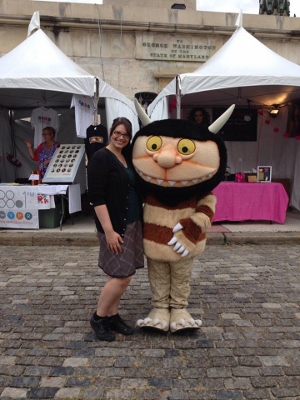
What’s up (via Claudia Astorino)
Well, okay, don’t look at The Wild Thing.
I mean, if we were passing each other on the street and you saw me. How would you read me?
Before you could even think about it, your brain would probably stamp me: FEMALE. I can’t really blame your subconscious for doing so. Part of being a living thing is to recognize stuff, categorize things, figure out who ‘s who and what’s what and what the hell is going on out here. Our brains do this kind of stuff all the time, although we can train ourselves to critically examine those thoughts when they do.
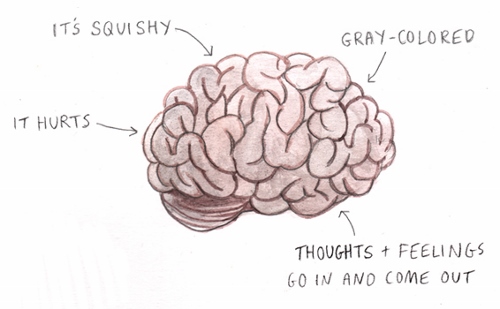
That pretty much sums it up! (via thehairpin.com)
In our society, one of the things you’re taught you need to know is how to tell girls apart from boys. This would be all well and good if there were only two biological sexes, but biology is too complex and too awesome to have just two options. Yay!
But we often don’t recognize this fact. All day long, I ‘m exclusively read as female by other people: STAMP! – FEMALE – in thousands of people’s subconscious. This automatic labeling means there are a lot of assumptions made about how I operate in the world, what I do and don’t do, who I am and am not.
Now, I’ve been socialized female and treated like a girl all my life, so I pretty much know what others expect of me looking like a lady. But there are a couple of things people assume I know about, when I actually have no idea.
One of these things is menstruation.
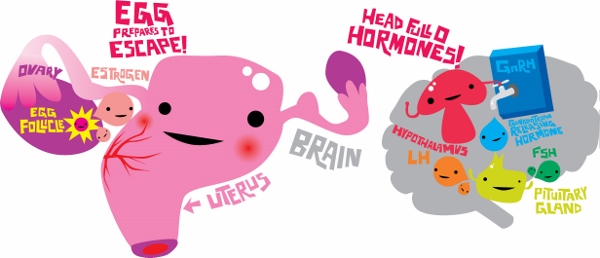
Also in other summing-it-up news (via iheartguts.com)
Some intersex people menstruate and others don’t, depending on your form of intersex, or even your variation within your form of intersex. I happen to not menstruate. People never expect this because I evidently look female, and female = menstruates. But I don’t. I never have. I ‘ve encountered the view that I ‘m “lucky ” or getting away with something my body is “supposed ” to do, but actually, my body was never supposed to menstruate in the first place. My form of intersex, androgen insensitivity, means that I never developed so-called “female” internal sex organs. The uterus, ovaries, Fallopian tubes — none of them. The ramifications of having atypical sex anatomy, however, means that, as person read female, I’m still expected to know stuff about having a period.
This has sometimes gotten me into some tricky situations.
I knew that getting your period was a hallmark of “normal ” lady-development. But I didn’t care about getting my period. I wasn’t going to get one, and I knew it. At age eight, I was told by an endocrinologist that 1) I was born without a uterus, and 2) I consequently couldn’t menstruate or give birth. I didn’t know WHY I didn’t have a uterus. Apparently, some women just don ‘t develop it or something? What I did know is that they hurt (from my mom) and that I wasn’t a fan of “little kids ” even as a little kid myself. Honestly? This magical no-uterus thing I had sounded fantastic to me. I misguidedly thought that by some natural fluke, I ‘d gained the superpower of not-menstruating, not-pregnanting, and not-childbirthing. Awwww yeah!
So when all the girls in my 6th grade class started talking incessantly about their periods, I couldn’t relate. It was like every girl knew, any day now, she ‘d undergo a divine transformation into Becoming A Woman and they were all praying like crazy to whatever period deities were out there that they ‘d be next. Or at LEAST soon.
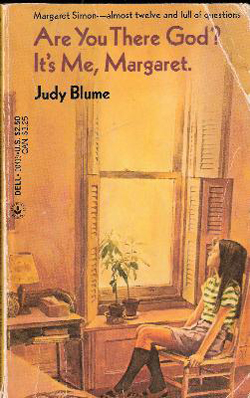
And I fucking want my period (via jezebel.com)
But I wasn’t. Getting my period was impossible, and therefore, irrelevant to me. Instead, my main interests were playing Girl Talk and pretending to be superheroes or princesses or superhero princesses (my favorite, duh).
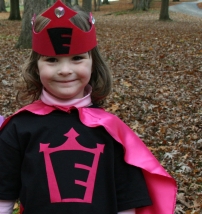
Clearly the best
(via babypop.com)
While everyone was not-so-patiently waiting to join the ranks of the fertile babies, there was a list out there. There was a list of all this shit I was supposed to know about getting your period, inherently, by virtue of being a girl and ACTUALLY getting your period. This list obviously eluded me, but I was expected to know all the stuff on it just the same. It was like going to school and suddenly getting a pop quiz for a class you didn’t even know you were taking and were pretty sure you’d never signed up for. These quizzes were all pass-fail, no partial credit, and I was expected to pass with flying colors. Really?I was silently hoping I wouldn’t just fail. And all I wanted to do was drop the damn class, *sigh*.
So I got roped into discussion after discussion about things I ‘d never anticipated I would need to know about menstruation until I was already in the moment, and had to think on my feet. Usually, I was too flabbergasted to come up with anything profound, so I totally lied my ass off. Because, like the vast majority of intersex individuals shuttled through the medical system, I had it drilled into me that people didn’t know what intersex was, wouldn’t understand if you tried to explain it, that it’s a personal thing that doesn’t need to be shared, and that if you do you’re just asking teasing and ridicule by your peers forever and ever. I’ve never experienced anything like that since I’ve been out, but I didn’t know any better at the time.
So I lied my ass off.
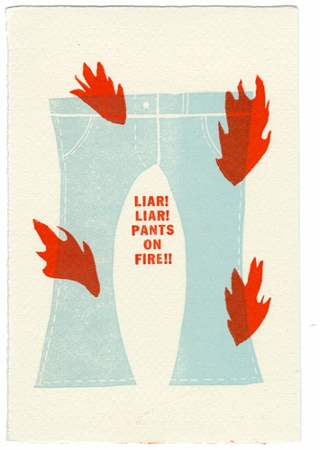
Oh, stop being so judgey (via letterpresshabitat.blogspot.com)
Here are a bunch of things people have brought up in conversation I never dreamed I’d have to address regarding menstruation.
My First Period Story
The first question I had to deal with was, “Didjagetit, didjagetit, didjagetit, didjagetit?!” This required a simple yes-no answer in 3rd grade, so I defaulted to “yes” since my daily estrogen pills had resulted in large breasts on my 8-year-old frame. Maybe I was just an early developer all around? Made sense.
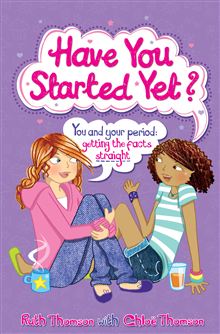
NO, I HAVEN’T, OKAY!
(via panmacmillan.com)
Later, once most girls had gotten their periods, conversations started around “my first time” stories. What? They wanted to know HOW I got my period the first time? Well, I fucking bled, right? Isn’t that’s what supposed to happen? What more did they want to know? I learned that girls got their periods in a variety of contexts — at home, at the mall, on vacation at the beach, with their families, with their friends, making out with their boyfriends, by themselves, if they felt pain, if they saw blood, if they were informed by the school nurse.
So, I needed a plot line, huh? I think I just stammered out that I got it at school and went to the bathroom and saw blood. I was afraid to embellish. I was a pretty voracious reader, and especially loved fantasy novels. If I let myself take too many artistic liberties, there’d be all sorts of improbable things in my stories that would give me away. I needed to play it safe.

And then out of nowhere there was this lamppost! (via gabrielricard.wordpress.com)
Pop quiz results: PASS.
Pages: 1 2 3See entire article on one page

Thank you. Thank you so much for this article!
I am not intersex, but I have “ovarian dysgenesis” meaning they are so small that they’re basically non-existent and they don’t work. So I had no oestrogen and no eggs, and as such no periods! I’m not almost 28 and it’s only now that I’m beginning to get comfortable with admitting that to people. Even those closest to me think that I menstruated at some point before my body decided my ovaries weren’t necessary. I just always felt so much shame about it.
It’s funny that I’m just now becoming okay with the fact that I don’t menstruate, because (due to medical negligence) it is only n
Damn that submit button!
It is only now that I’m finally on hormone replacement and I’ve been warned that after a few months of that I am likely to start experiencing a monthly bleed. So I feel like a teenager all over again.
Anyway, thanks again for this. I really needed to read about someone else’s experiences because I’ve always felt so different.
This was really eye opening (and well timed).
I’m on the first day of my period and feeling the “DEAR GOD, WHY AM I FEMALE!? WHY MUST MY UTERUS DO THIS?” vibe. But this article pointed out to me that if my uterus didn’t do it, I’d face a whole load of social confusion and assumptions based on being female. I think (as I’m fairly andro) that I’d prefer it that way, but 11 year old me probably wouldn’t have coped with any more reasons to be different.
To all the ladies out their who menstruate: mad props for getting through it.
To all the ladies who don’t: made props for putting up with a society that assumes you do! And you may of course join in the ritual chocolate consumption :)
Thanks for sharing. I found some of your experiences odd, not because you don’t menstruate but because no one (and by that I mean peers, not medical types that always ask) has ever asked me that sort of stuff before. Actually, no, one exception, a woman at work did not long ago. Which I thought was bizarre and too personal and I’m sure I was looking at her with clear “wtf?” written all over my face. I wouldn’t even talk to friends about stuff like that, and they’ve never asked! Although, someone may make a comment about their own issues (cramps, etc) once in a while, to which I mentally squirm.
Exactly. To me, it is a very personal thing that I just don’t discuss nor feel the need to discuss. None of my friends ever sat around talking about their periods. Maybe just say they had bad cramps or whatnot.
I really don’t talk about sex either. And I certainly don’t want to hear about someone else’s sex life. But some of my friends feel the need to overshare. Their excuse is that apparantly, I’m easy to talk to. I don’t know if that’s a good thing anymore.
Claudia, this article made me LOL. I’m so glad that you tackled intersex awareness from this POV!
I’m a physician, and also author of a YA novel about a girl with AIS called NONE OF THE ABOVE (due 2015 from Balzer and Bray / Harper), so when my friend recommended this article to me I came right on over. I’m going to bookmark it on my website. Feel free to contact me if you want an advance copy of my book!
I was just thinking the other day how I wish there were more articles by Claudia around here and ta-da, wish granted.
You have such a smooth style to your writing, and it makes me consider new things every time. Not just the sorts of “new” things that are topical and everyone else is covering in various voices, but genuinely new. Thank you for what you do.
I know! I’ve loved each of Claudia’s articles, and I’m very excited for more.
Really interesting, thank you
Wow, this was a really excellent read! The “Sister Mary Slutshamer” had me crowing.
I feel like I’m always thinking about the awk sexuality questions during checkups, so it was great to learn about the other medical assumptions I take for granted.
I am so calling my nurse this (privately) from now on. I too crowed hard. It’s when they ask are you pregnant-no, what contraception are you using-none. Cue the look of absolute disgust and loathing.
Thanks for this. A great account of feeling like an imposter, finding highly creative cover stories in order “to relate and identify”, and a good summation of one’s personal reality versus public assumptions and expectations.
I loved the Nurse Practitioners name, though I seriously hope she is not like this at all. It is depressing if she was bigoted and religious.
Sigh. I’m not intersex, but I am a trans woman, and apparently I pass well enough to get invited to take part in “period talk,” and it’s always uncomfortable because I have absolutely NO CLUE what to say.
Also: without fail, whenever a cis girl who knows I’m trans is having her period, she NEVER FAILS to tell me how “lucky” I am not to get them. And on the one hand, I understand, but on the other hand, me not getting periods is a) just another marker that has been used throughout my life to separate me from girlhood and to designate me as ‘other,’ and b) the (indirect) cause of my not being able to get pregnant and have a baby which has only been a barb in my heart since I was six years old . . . so yeah.
But anyway, thanks so much for the article, and it was really nice to have the reminder that trans girls are not the only girls who have to navigate all the cultural expectations about girlhood menstruation without, y’know, actually menstruating.
Say “menstruation” one more time, Audrey.
Menstruation.
Oh, I loved this.
One of my favourite excruciating trans moments in life are those talks with physicians, the forms held out by judgey nurses. When the period questions start, I’m never sure how much I should not disclose, how long. Usually I simply leave the menstruation questions unchecked, and elect not to tell anyone about my trans status until I speak with the main practitioner to see if they are going to lay a grand mal cis panic on me or not. Some do, and how. Sometimes, if the examination might require it, I elide half the facts, “umm… I was born without a uterus?” True enough, indeed, and usually enough to keep them calm and focused. I’ve wondered what intersex folks might make of such appropriative covering; but doctors in my experience tend to be a bit more sympathetic, obliging, and discrete when they assume I have some intersex condition instead of vanilla transsexuality. What one doesn’t want is the alternative – the doctor with the flashing trans=malpractice warning light on their forehead. These inevitably, literally, actually start sweating and ask me why I came to them for treatment for x medical need because “aren’t there specialists for your kind?” :/
It’s illuminating to compare IS folks’ narratives with T*. I’m often struck by the manifold differences, yet interwoven with that very similar, thick layer of imposed shame, in medical contexts feeling as if a big cranky magnifying glass is hovering critically over folks’ shoulders…
This so much. There have been several times when I’ve gotten wrapped up in long, drawn-out period talks, and it’s always uncomfortable and triggering for me.
The tone of this piece is just phenomenal. I was laughing throughout–and in a very didactic way. Thank you for sharing your experiences! Whether you do or don’t or kind-of or have in-the-past menstruated, there is something to learn from this article. And, it’s a lovely reminder that everything we consider common sense–like what tampon strings are for–is learned via social construction.
Thank you, Claudia! This was awesome!
I have always found the way we talk about periods to be somewhat bizarre, and this piece really illuminates another facet of the whole situation.
Great article! Just wanted to pipe up and say that Sport Tampons are a thing and they are GREAT! Even though I don’t play any sports…
But DivaCup rules them all!
Oh! “Sport tampons,” not “tampon sports.”
I’m so relieved!
Fascinating article- so many of those assumptions are things we never ever question.
As a health care provider, I wonder if you have any ideas on how to phrase the question more sensitively, given that information about menstruation is medically relevant for many patients. Have you had any providers that you felt handled it particularly well?
Seems that the first step would be having other options to choose from than the male/female dichotomy?
Actually I’m pretty surprised what a big deal the period seems to be. “My period book”, seriously? Well, I grew up in Germany and it seems that it doesn’t matter so much here. At least I can’t remember having any long talks with friends about this topic. Okay, I also belong to the group of women who can’t really relate to the pains other women have (a bit of blood in my panties once a month, that’s it pretty much).
Or is there maybe a cultural difference as well?
Either way, thanks for sharing!
Agree on cultural differences thing. British folks, at least the ones around me growing up, didn’t discuss periods. It was like you get it, you keep it to yourself and you get on with it. Fascinating that there are books for kids on it!
Super well written and a great read! I hope to see more stuff by you soon Claudia!
Brilliantly written, interesting r.e. Your experience and fascinating from the perspective of a Brit. At least in my experience our stiff upper lippiness requires us to not speak of periods openly, they’re an embarrassing once a month thing that is personal and unless you have to deal with medical professionals, (eg nurse slutshame who I hate seeing but who looks at me in disgust for not using contraception…then more disgust when I say I’m gay), you don’t really talk about them other than the occasional whine to close friends/gf/family or request for emergency sanitary assistance. There’s a distinct lack of Judy Blume esque desire for them as kids here and not once were they discussed as being our initiation to woman hood. America is apparently the land where periods roam freely in conversation.
I hate my period so much that I’ve never really thought before about how it might feel to not have a period when others expect that you do, so thank you for opening my eyes and making me think about it more.
Omg, that college nurse practioner. The one at my women’s college believes literally every ailment boils down to the fact that you’re probably pregnant. Foot hurts? Pregnant. Migraines? Pregnant. And don’t you ever tell her your stomach hurts or you’ll be takng multiple pregnancy tests. She didn’t really get the fact that there was no way I could be pregnant (due to my d-free existence) that I can only imagine how fast her head would spin if a girl came in that was intersex.
This was a great article -really made me think. Thank you!
I am a Registered Nurse also, and although my area is not Sexual Health or Primary Care (first line of care ie GP), I am not surprised, but disappointed at the reports of discriminatory and judging Nurses, who, for some of the more liberal ones, will be used to dealing with heterosexual women with uterus’, ovaries and fallopian tubes and balanced hormone function, who maybe simply do not think wider than this typical female patient presentation on a busy day, but they are obliged as Nurse Practitioners, to use every form of diagnostic and investigational test at their disposal to identify the root of the problem, and to base their care from that.
I am not surprised but feel awful for so many of you who have been dismissed, judged, excluded, been forced to disclose incredibly personal and vulnerable information to Nurses and Drs who are homophobic and ignorant. The questions relevant to the problem need to be asked, as well as obtaining medical and social history. That this information is being treated insensitively and beyond that, is judged as inferior, is incredibly unprofessional and backward. I am sorry for all those arseholes who you all have unwittingly been judged and discriminated by.
Thank you so much for this! I actually just had an encounter today where a bunch of girls were comparing tampons in different countries and I was just like HAHAHA YEAH while inside I’m thinking “Shit, they’re not just the same? don’t you just stick them up there and let them do their magic sponge thing?”
I’ve had some similar experiences, although I fall into the category of ‘I should actually menstruate once in a while*’. My group of friends through elementary and middle school, however, did not focus on menstruation in any of our conversations, from what I recall (and we were in the usa). I’m out of college and I *still* am not sure what pms is like for me, so my girl talk is pretty limited.
My experience with medical professionals also includes an insistence on knowing when one’s last period was, which for many years, had never been presented in anything other than a pregnancy-context.
I’ve also heard an opinion expressed, when talking with a woman in a managerial position, that female employees who had trouble predicting their periods (and needed supplies, changes of clothes, etc) just don’t know how to count to 28. I was a little surprised she had never heard of non-preganancy reasons to have irregular periods. I wasn’t comfortable educating her on just how irregular my periods have been, though. (For the record, it’s anywhere from 14 days to ~120 days in a cycle, with most being around 90-day cycles.)
It is perhaps worrisome that if a woman manager, who presumably has gotten (in)formal social education on menstruation, holds this misconception, many more male managers, who generally don’t get the same education, may have the same misconception when dealing with any of their female-and-menstruating employees.
*’Should’ in the sense of, as it was explained to me, having a period at least every 3 months significantly reduces the risk of reproductive cancers. (Because uterine lining is fertile stuff and who knows what (harmful things) it could get up to, unsupervised for long stretchs of time…). Note I’m not a medical professional, and this explanation does not hold for pregnancies, where the uterine lining is busy growing, ya know, a baby.
Hey Claudia! First I just wanted to say your article was awesome. It’s really cool to read about the experiences of an intersex woman as a dyadic non-binary person. However, I just wanted to point out that you used a lot of cissexist language in your article. First, instead of saying female or male, I would say designated female at birth (DFAB) or designated male at birth (DMAB). That’s more sensitive to trans and non-binary people. Also, not all people who get periods are women, so you might clarify that by saying people with periods (PWPs) when talking about the biological aspects and stuff. Hope that’s helpful. :)
Hi, thanks so much for this. As a recently post-op non-gendered trans* female, I resonate a lot with this (disclaimer: that’s not the same as “identifying with”!) – I have a body that (speaking in binary terms) is nowadays neither female nor male, exactly, and I have no binary gender identity to fall back on either, because gender doesn’t make any sense of my experience anyway.
I’m happy being who I am, but also aware of the “out-group” I’ve automatically been assigned by some cis women for not sharing this experience.
The way I see it, I managed to fit my menarche and menopause all into a couple of weeks around surgery – now the bleeding’s done, I can get on with the important work of being a trans crone :D.
I’m only twelve an a girl but I’m scared I might be intersex and starting to develop the part.
Thanks for sharing this best stuff with us! Keep sharing! I am new in blog writing. All types of blogs and posts are not helpful for the readers. Here the author is giving good thoughts and suggestions Small claims Toronto Paralegal to each and every reader through this article. literature-essay Quality of the content is the main element of the blog and this is the way of writing and presenting.